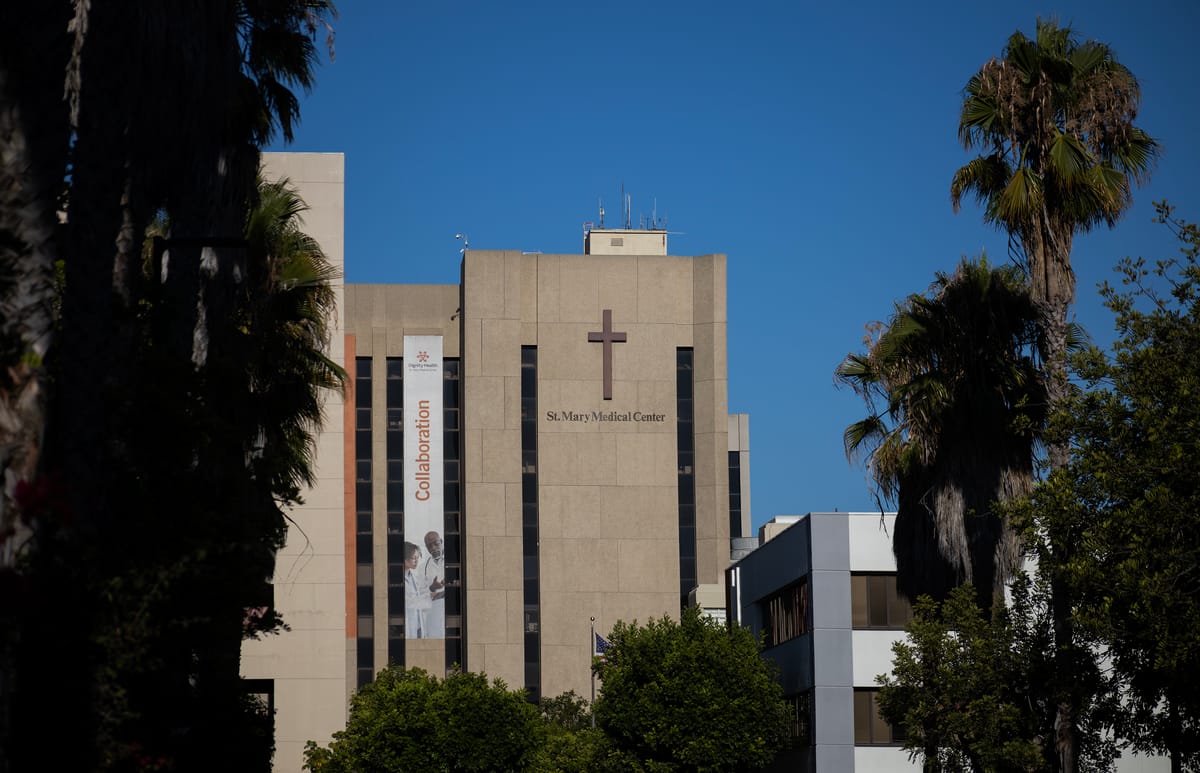LA County hopes data sharing will help reduce medical debt; Long Beach won't participate
County hospitals will soon be required to share medical debt data in hopes of identifying assistance gaps.

Los Angeles County residents are drowning in billions of dollars in collective medical debt. County officials hope that requiring hospitals to regularly report on the debt will help them identify “gaps in financial assistance” and reduce the burden.
Earlier this month, the LA County Board of Supervisors voted unanimously to move forward with an ordinance requiring hospitals to report data on medical debt. Since Long Beach has its own health department, the ordinance will not apply to Long Beach Memorial or St. Mary Medical Center.
“Too many LA County residents have medical debt that they can’t afford and it is holding them back,” Supervisor Janice Hahn said in a statement. “If we can get data from hospitals on the patients who are burdened by medical debt and being sent to collections, we can begin to figure out how to tackle this problem going forward.”
Hahn, who has led the board’s broader effort to combat medical debt, said the data should allow the county to identify trends and ways to better assist low-income patients.
According to the county, LA County residents have amassed more than $2.9 billion in medical debt — affecting one in 10 adults in 2022 and disproportionately affecting families with children, lower-income, Latino, Black, American Indian, and Pacific Islander residents, and people with chronic health conditions. Approximately 46% of the debt is held by people with income under 200% of the federal poverty line.
Long Beach officials do not have similar data available.
The newly passed ordinance complies with HIPAA, officials said, and includes privacy protections.
The ordinance requires a second reading at an upcoming board meeting and will take effect 180 days after that reading, according to Hahn.
When enacted, the seven acute care hospitals in the unincorporated areas of the county must submit data on debt collection and financial assistance as well as patient accounts advanced to collections.
In Long Beach, officials say there are no plans to enact a similar requirement. A spokesperson for the city’s health department reiterated that the county ordinance does not apply to Long Beach hospitals and noted that the department is not pushing for a similar ordinance.
All nine City Council offices confirmed they are not currently working on a similar proposal and have not heard of anyone who is.
“It definitely merits a deeper look,” 8th District Councilmember Al Austin said, adding that he was unaware of the county’s ordinance.
Long Beach Memorial is committed to providing care to all patients, regardless of their ability to pay, spokesperson Richele Steele said. As a member of the Hospital Association of Southern California, Steele said the hospital generally supports efforts to reduce the impact of medical debt and is working on related initiatives.
“MemorialCare believes that reasonable data reporting requirements can aid in these efforts, provided that the requirements and related processes are manageable … and they do not expose hospitals and other providers to potential risks associated with cybersecurity or data breaches,” Steele said.
St. Mary deferred questions related to the ordinance to the hospital association, which also voiced concerns related to the added work load for hospital workers and security.
In 2020, hospitals provided over $42 billion in uncompensated care nationwide due to inadequate reimbursement from the likes of Medicare and Medicaid as well as services provided to the uninsured, HASC CEO George Greene said.
“Hospitals advocate for comprehensive coverage for all and continue to absorb significant financial losses to care for those unable to pay,” Greene said. “Despite their efforts, gaps in health care coverage like high deductibles expose patients to unaffordable costs, highlighting the limitations of current insurance programs.”
The association is concerned, however, about the “extensive” amount of patient-specific data being requested by the county health department, Greene said. Much of the data is not readily available within hospitals’ systems, he said, and will create a lot of work when hospitals are already struggling with staffing.
Along with additional work for hospital staff, the ordinance also will bring added work to county health department staff. In Long Beach, it's unclear whether the health department would be able to take on the laborious task, considering it is already understaffed along with most city departments — an issue officials are trying to tackle by revamping its hiring process.
Greene also pointed out recent security issues, including the statewide Change Healthcare data breach and county health department data breach in February that compromised the personal information of more than 200,000 people.
“We are deeply concerned about the security of sensitive patient data,” Greene said, adding that the HASC will support such a measure as long as it is “reasonable,” not “overly burdensome” and secure.
“Any data collected must be actionable,” Greene added. “Data for the sake of data collection does not serve the intended purpose and adds unnecessary complexity and risk.”
Editor's note: This story has been updated to reflect that Long Beach Councilmember Suely Saro responded to the Watchdog after numerous inquiries.

We need your support.
Subcribe to the Watchdog today.
The Long Beach Watchdog is owned by journalists, and paid for by readers like you. If independent, local reporting like the story you just read is important to you, support our work by becoming a subscriber.





